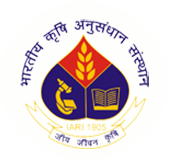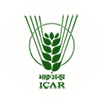Agri-food chain relationships / edited by Christian Fischer, Agribusiness, Logistics and Supply Chain Management Institute of Food, Nutrition and Human Health, Massey University, Auckland, New Zealand, Monika Hartmann, Agricultural and Food Market Research Institute for Food and Resource Economics, University of Bonn, Bonn, Germany.
Material type: TextPublisher: Wallingford, Oxfordshire, UK : CABI, 2010Copyright date: ©2010Description: 1 online resource (288 pages) : illustrations, chartsContent type:
TextPublisher: Wallingford, Oxfordshire, UK : CABI, 2010Copyright date: ©2010Description: 1 online resource (288 pages) : illustrations, chartsContent type: - text
- computer
- online resource
- Food industry and trade
- Food supply
- Agricultural industries
- Agricultural Economics
- Horticultural Economics, (New March 2000)
- Food Economics, (New March 2000)
- Policy and Planning
- Marketing and Distribution
- Meat Produce
- Crop Produce
- Agricultural policy
- Agricultural products
- Agroindustrial relations
- Agroindustrial sector
- Beef
- Bread
- Cereals
- Food marketing
- Food products
- Fruit
- Malting barley
- Marketing channels
- Pigmeat
- Vegetables
- Wines
- EE110
- EE111
- EE116
- EE120
- EE700
- QQ030
- QQ050
- 338.1 23
- HD9000.5 .A3725 2010eb
This book is the result of several years of research activity on the topic of how to better link farmers, processors and retailers with each other in order to ensure and improve the supply of food products which meet consumer needs and wants. The book is structured in three parts. Starting with an overview regarding main developments in the agri-food sector with relevance for chain relationships (chapter 1), Part I is mainly concerned with providing the theoretical foundations for analysing agrifood chain relations (chapters 2, 3 and 4). Building on this conceptual basis, the second part presents in-depth empirical evidence for different countries, food chains and chain stages regarding the issues of trust and sustainable relationships in agri-food chains (chapters 5 to 14). The red meat industry (beef and pigmeat) is the focus of chapters 5, 7 and 9. Cereals (bread and malting barley) are analysed in chapters 5, 7, 8, 10 and 13. Horticultural products (fresh produce and wine) are investigated in chapters 6, 12 and 14. Regionally, the studies cover Europe, North America (the USA), China, Australia and the Philippines. While most studies were conducted in developed markets, chapters 6 and 12 look at the particularities of transition or developing economies. As to individual agri-food chain stakeholders, a number of chapters (chapters 5 to 12, 14 and 15) offer and discuss separate findings for farmers, food processors or retailers. Based on the theoretical and empirical findings in the first two parts of the book, recommendations for agribusiness managers (chapter 15) and policy-makers (chapter 16) are described in the third part. Chapter 17 discusses avenues for future research.
Includes bibliographical references and index.
Analysing inter-organizational relationships in agri-food chains / Christian Fischer and Monika Hartmann -- Building sustainable relationships in agri-food chains : challenges from farm to retail / Monika Hartmann, Klaus Frohberg and Christian Fischer -- Inter-organizational relationships in agri-food systems : a transaction cost economics approach / Fabio Chaddad and Maria E. Rodriguez Alcalá -- Behavioural economics and the theory of social structure : relevance for understanding inter-organizational relationships / Monika Hartmann, Julia Hoffmann and Johannes Simons -- Collaborative advantage, relational risks and sustainable relationships : a literature review and definition / Christian Fischer and Nikolai Reynolds -- Trust and relationships in selected European agri-food chains / Philip Leat, Maeve Henchion, Luis Miguel Albisu and Christian Fischer -- A review of the trust situation in agri-food chain relationships in the Asia-Pacific with a focus on the Philippines and Australia / Peter J. Batt -- Determinants of sustainable agri-food chain relationships in Europe / Christian Fischer, Monika Hartmann, Nikolai Reynolds, Philip Leat, César Revoredo-Giha, Maeve Henchion, Azucena Gracia and Luis Miguel Albisu -- Enhancing the integration of agri-food chains : challenges for UK malting barley / César Revoredo-Giha and Philip Leat -- From transactions to relationships : the case of the Irish beef chain / Maeve Henchion and Bridin McIntyre -- Reviewing relationship sustainability in the case of the German wheat-to-bread chain / Miroslava Bavorová and Heinrich Hockmann -- Inter-organizational relationships in the US agri-food system : the role of agricultural cooperatives / Fabio Chaddad -- Guanxi and contracts in Chinese vegetable supply chains : an empirical investigation / Hualiang Lu, Jacques Trienekens, Onno Omta and Shuyi Feng -- Inter-organizational relationships as determinants for competitiveness in the agri-food sector : the Spanish wheat-to-bread chain / Azucena Gracia, Tiziana de Magistris and Luis Miguel Albisu -- How buyer-supplier relationships can create value : the case of the Australian wine industry / Lynlee Hobley and Peter J. Batt -- Best practice in relationship management : recommendations for farmers, processors and retailers / Hualiang Lu, Peter J. Batt and Christian Fischer -- Improving agri-food chain relationships in Europe : the role of public policy / Luis Miguel Albisu, Maeve Henchion, Philip Leat and David Blandford -- Lessons learned : recommendations for future research on agri-food chain relationships / Fabio Chaddad, Christian Fischer and Monika Hartmann.
Access limited to subscribing institution.
Also available in print format.
Title from PDF title page (viewed August 11, 2013).


There are no comments on this title.